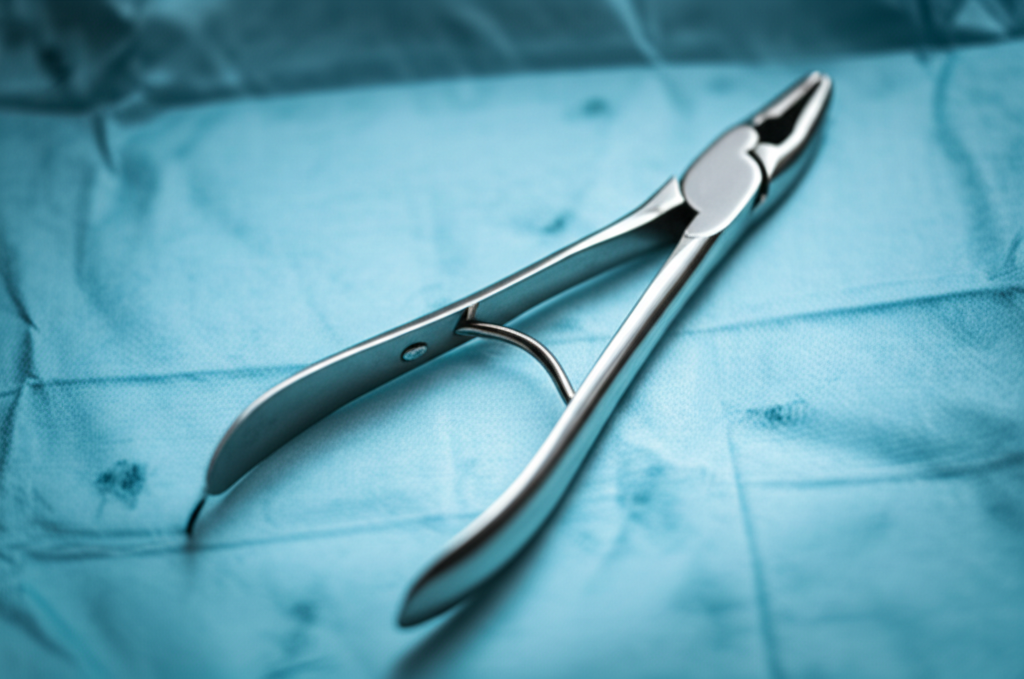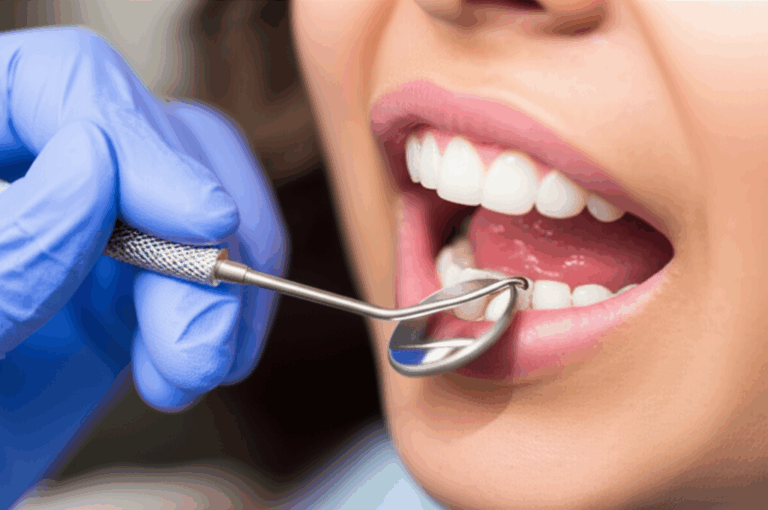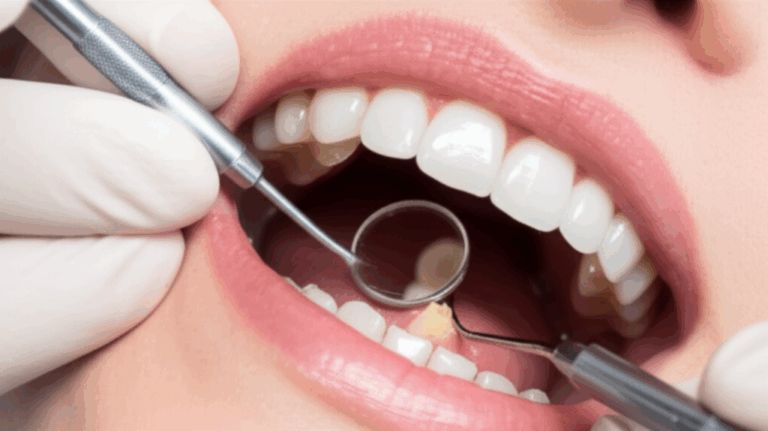
Can My Dentist Refuse to Give Me My X-Rays? Understanding Your Rights & What to Do
Have you ever felt stuck when your dentist seemed unsure—or even just said no—to giving you your dental x-rays? Maybe you’re moving to a new office for another opinion, or you just want your own records for peace of mind. No matter why, you might wonder, “Can they really do this? What am I allowed to have?”
Let’s make it clear together. Dental x-rays are an important part of your health info, and it’s your right to see them and get copies if you want.
Table of Contents
Your Right to Your Dental X-Rays
Let’s get straight to it: In almost all cases, your dentist has to give you a copy of your dental x-rays if you ask. This isn’t just being nice—it’s your right by U.S. law. Dental x-rays and your whole dental file are part of what’s called “protected health information.” You have the right to see it, get copies, or have it sent to another dentist.
Why should you care? Your dental x-rays let a new dentist find out if your problem is big or small. They can help you get another opinion, move to a new dentist, fill out insurance claims, or just help you keep track of your health. If you can’t get them, you can’t take care of your mouth as well as you should.
Think of your dental record like the instruction manual for your car. It belongs to you, even if the repair shop hangs onto the real booklet.
The Legal Rules: Getting Your Dental Records
The laws about medical—and dental—records can sound really complicated. But the basic ideas are simple.
HIPAA: Federal Law Protecting Health Info
HIPAA (the Health Insurance Portability and Accountability Act) is a federal law that lets you get copies of all your health info—including dental x-rays.
- The Privacy Rule: This rule says you can look at, get a copy of, and ask for changes to your dental records. Your dentist has to follow HIPAA.
- Your Right: Dentists must get back to you within 30 days (or 60 if there’s a real reason, but they must tell you in writing).
- Fees: Dentists can charge you, but just for copying and mailing (not for “getting” your file). If your x-rays are digital, it should just be the real cost of a printout or USB.
State Laws May Give You More
Sometimes states say you get records even quicker.
- Some states are faster: In California, you get records in 15 days.
- Dental Boards: Every state has a dental board that checks on dentists. If you’re refused, you can file a complaint.
Ethics from the ADA
The American Dental Association (ADA) says patients should always be allowed to see their own records. Even though the dentist owns the real x-ray film or file, they still have to give you the info.
Table: Law & Guidelines
| Aspect | Rule | What It Means for You |
|---|---|---|
| Federal Law | HIPAA (Privacy Rule) | Copies of all your health info, including x-rays, in 30 days |
| State Laws | Vary by state, sometimes stricter | Maybe even faster or easier access |
| Ethics | ADA & State Dental Boards | Dentists must help you get your records |
Who Really Owns Dental X-Rays?
This is often confusing. Here’s the simple truth.
The Dentist’s Part
Dentists own the real x-ray film or digital file—they bought the stuff, took the x-ray, and have to keep it for several years by law.
Your Part
You own what’s on the x-rays—the information in them. HIPAA says you can see it, get a copy, or have it sent.
Remember
- You get a copy.
- Dentist keeps the original.
It’s like when your teacher keeps the real graded test, but you can get a copy, too.
Common Reasons to Ask for Your X-Rays
Why might you need your dental x-rays? Lots of good reasons.
1. Getting Another Opinion
Maybe you’re told you need a big, expensive treatment, but you want to double-check. Your current x-rays mean you don’t pay twice—and the new dentist can see your teeth as they are.
2. Changing Dentists
If you get a new dentist, bringing your dental x-rays means your new dentist won’t have to start from scratch. It saves you time, money, and avoids extra x-rays.
3. Just for Your Records
Some people just want a set for home. Maybe you like to keep everything, or you have a complicated health story.
4. Insurance or Legal Reasons
Insurance companies sometimes need x-rays. Or, you might need them if you’re settling a dispute or making a legal claim.
How to Ask for Your Dental X-Rays and Records
You want your records, but you’re not sure how to ask. Here’s what you should do.
Step 1: Write It Down
Some places will let you call, but writing is best. That way you have proof you asked.
What to Put In
- Full name and date of birth
- Dates you were treated (best guess is okay)
- What you want: Say ‘x-rays’ and/or ‘dental chart’
- Where to send: Your address, email, or new dentist’s office
- Your signature and the date
Try this template:
To: [Dental Office Name]From: [Your Name, DOB]Please send copies of my dental records, including all dental x-rays taken between [dates]. Send to [email, address, or new dentist].Thank you,[Your signature]Step 2: Fees—How Much?
Under HIPAA, your dentist can only ask for what it really costs to copy and send your records. They can’t charge a made-up “release” fee.
- Digital files cost less than paper—a few bucks for a CD or USB, or free by secure email.
- Regular x-ray copies might cost a small amount per page or film.
Step 3: How Long Should It Take?
- HIPAA says 30 days max (could be shorter if your state says so).
- After a month, send a polite note to check on it.
Step 4: File Types
- Digital x-rays are most common now. You can get a CD, USB, or email.
- Paper printouts can be made for old-style x-rays.
Step 5: Who Can Ask?
- You, the patient
- Parents/guardians for kids
- Legal representative/power of attorney for someone who needs help
When a Dentist Might Seem to Say No (and What That Means)
Sometimes, it looks like a dentist is saying no, but there might be other reasons.
Busy Office
Small offices can get behind on paperwork. They should still help you though!
Tip: Check again after a week or two—always be polite but stick up for yourself.
Unpaid Bills
Worried they’ll hold your records until you pay up? They can’t. Laws say dentists can’t keep health records back, even if you owe money. You might not get more treatment until you pay, but you must get your records.
Confused Staff
Some office workers—or even dentists—may not know the rules. Send a request in writing and mention HIPAA to get things moving.
‘Originals’ versus Copies
You can ask for copies only. Dentists must keep the originals, by law.
What to Do If You’re Turned Down or Ignored
If you’ve waited and still hear nothing, or you’re told “no,” try this:
1. Send a Written Follow-Up
Ask again, and mention the law:
> “By the HIPAA Privacy Rule, I can get copies of my dental records, including x-rays, in 30 days. Please send by [date], or say in writing why not.”
That usually works.
2. Tell the State Dental Board
If the office keeps ignoring you, your next step is the state dental board. They can punish dentists who refuse to follow the rules.
You can usually do this online—search for “[Your State] dental board complaint.”
3. File a HIPAA Complaint
The Office for Civil Rights (OCR) at the U.S. Department of Health & Human Services handles these complaints. You can file one if you were refused, overcharged, or just left waiting too long.
Check hhs.gov/hipaa/filing-a-complaint.
4. Talk to a Lawyer
If you’re hurt by this, or it keeps happening, it might be time to talk to a lawyer who knows health records.
5. Find a New Dentist
Honestly, if your dentist gives you a hard time about something this basic, maybe it’s time for a change.
Main Points to Remember
Let’s make it simple:
- You have the right to get your dental x-rays and dental records.
- Dentists must give them to you within 30 days (sometimes faster).
- They can only charge for real, small fees—not big “release” charges.
- Owing money doesn’t stop you from getting your records.
- If you’re refused, you can: Go to the state dental board, file a HIPAA complaint, or get a new dentist.
Standing up for yourself isn’t causing trouble—it’s smart and protects your health.
Frequently Asked Questions (FAQs)
1. Can my dentist charge me to send my x-rays?
Yes, but only what it really costs to copy or send the files—not made-up fees.
2. How long does it take to get x-rays?
By law (HIPAA), they have 30 days after you ask. Some states are faster.
3. Do I need a reason to ask for x-rays?
Nope. You don’t have to explain. You can ask just because you want them.
4. What if my dentist lost my old x-rays?
Dentists are supposed to keep records for 5–7 years (it depends on your state). If they lost them, you can file a complaint with your dental board.
5. Can a new dentist ask for my x-rays for me?
Yes! Many new dental offices will ask for your x-rays, if you let them—but the rules about fees and timing are still the same.
Real Example: When the Rules Work
Samantha needed a crown and wanted to check with another dentist. Her old dentist promised to send x-rays, but nothing happened for two weeks. She sent a written request, pointing out HIPAA. Still nothing. She filed a complaint with her state dental board—and a few days later, her x-rays came, along with a sorry note from the manager.
It might not be quick and easy, but if you stick with it, it usually works out.
Simple Tips for Getting Your Dental Records
The Big Picture: You’re in Charge
You may only think about dental x-rays when you need them. But you have the right to get them fast and easy—it’s the law. Your health and your choices come first.
If you’re unsure or need help, your new dentist’s office can guide you—they handle this all the time. With a little patience and confidence, you’ll get what you need and can move ahead with a smile.
Explore More
If you want to know more about digital dental work or special dental care, see how a digital dental lab helps dentists and patients with the latest technology.
Sources:
- U.S. Department of Health & Human Services—Office for Civil Rights (OCR), HIPAA Guidance
- American Dental Association (ADA) Professional Conduct Code
- State Dental Board Websites
(Always check your state dental board’s official rules for local details.)








